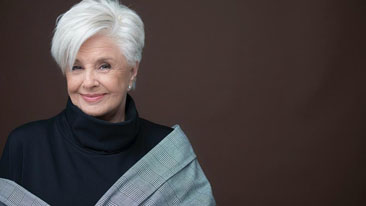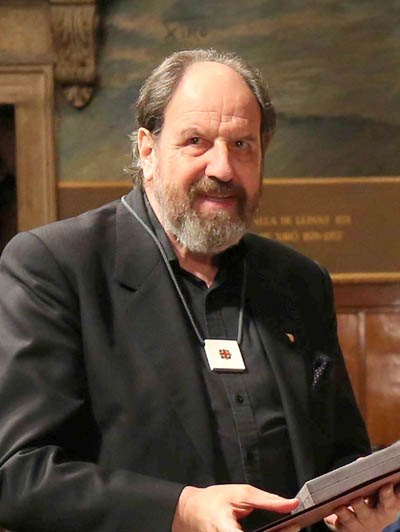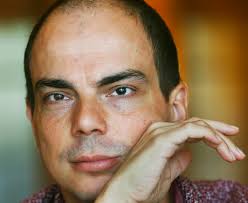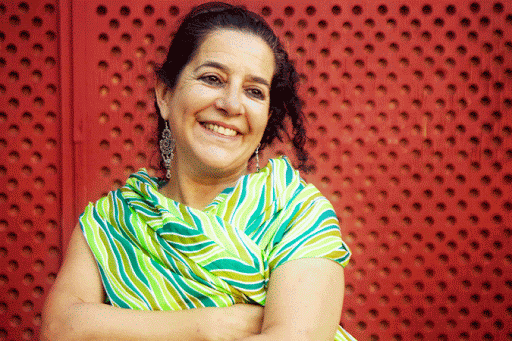The Universidad Internacional Menéndez Pelayo grants the annual honorary La Barraca award to standout individuals across the different branches of the performing arts. The award is granted by the Governing Council after a taking a secret ballot and attaining an absolute majority. The accolade itself comprises a reproduction of a symbolic object from the world of performing arts and a diploma issued by the Vice-Chancellor of the UIMP stating the year when the award was granted.
2024 Award: Ana Belén
María del Pilar Cuesta Acosta, better known by her stage name Ana Belén (Madrid, 1951), is a Spanish singer, actress and director. In her long artistic career of almost sixty years, she has acted in numerous films and plays and has published more than thirty-five albums, winning the most important awards in all disciplines. From a very young age she felt her artistic vocation and therefore, while studying music theory and piano, she began participating in children's radio contests. In 1964 she was already famous in the radio stations as a new child prodigy, with the name of Mari Pili Cuesta, in the style of Rocío Dúrcal or Marisol, whom Ana Belén admired. At the age 13 she recorded her first songs and soon began to work permanently in Radio Madrid to fill a gap left by Rocío Dúrcal, until the production company Época Films became interested in her and signed her a four-year contract to shoot four children's musical films.
Her first film appearance with Época Films in conjunction with Benito Perojo, at the age of 13, was in the children's musical film, Zampo y yo, working with the actor Fernando Rey under the direction of Luis Lucia Mingarro. The film, released in 1965, was not as successful as expected, a fact that prevented the realization of the other three films that were planned in the contract with Época Films. This production company gave her the stage name Ana Belén. After the failure of Zampo y yo, Ana Belén embarked on a personal career as a dramatic theater actress under the guidance of Miguel Narros, a renowned theater decorator and director who noticed her during the filming of the movie. With him she had one of the most influential encounters of her professional career. She began studying at the Teatro Estudio de Madrid, first attending as a listener and then began to study acting and drama. Since then, he has developed a solid theatrical career for more than 50 years in which he has worked with the most renowned directors and has played the most outstanding characters on stage.
2023 Award: José Luis Gómez

José Luis Gómez (Huelva, 1940) is an actor, theater director, member of the Spanish Royal Academy and founder of Teatro de La Abadía. After training for several years in Poland, the United States, France and especially in Germany, he returned to Spain in 1971. His first projects as director, actor and producer were Informe para una academia, by Franz Kafka; Gaspar, by Peter Handke, and La resistible ascensión de Arturo Ui, by Bertolt Brecht.
Between 1978 and 1981 he co-directed, together with Nuria Espert and Ramón Tamayo, the Centro Dramático Nacional and later directed the Teatro Español. After several years directing, producing, and starring in plays in Spain, in 1992 he staged in Paris the production of Calderón de la Barca's La vida es sueño, and in 1993 the opera Carmen, by Georges Bizet. Since then, he has concentrated on the conception, management, and direction of the Teatro de La Abadía, inaugurated in 1995. His most recent works at La Abadía are Mio Cid, Unamuno: venceréis pero no convenceréis, Celestina, and Fin de partida.
José Luis Gómez has worked simultaneously in theater and in film, where he has collaborated with Ricardo Franco, Gonzalo Suárez, Carlos Saura, Manuel Gutiérrez Aragón, Miguel Hermoso, Milos Forman, and Pedro Almodóvar. He has received numerous awards throughout his extensive career.
2022 Award: Lola Herrera
The actress Lola Herrera (Valladolid, 1935) has just finished her historic run as Carmen Sotillo in Cinco hora con Mario (Five Hours with Mario), Miguel Delibes’ emblematic work which she has starred in for over four decades. Herrera came to Madrid in the early 1950s to start her acting career. Her big screen debut came in 1953 in the film El pórtico de la gloria. She then spent time in the theatre and appeared on the small screen in the early 1960s in series such as Gran teatro, Confidencias and Historias para no domir. In the 1970s, the actress combined television and film work, appearing in La Lola, dicen que no vive sola, La semana del asesino, Abortar en Londres and Arriba Azaña. Herrera has won many awards, including the Gold Medal of Merit for the Arts (1999), the Gold Medal of Merit for Service (2006) and the Max Award for her performance in Solas in 2006.
2020 Award: Josep María Pou
An actor and theatre director, Josep debuted in the Teatro Español in Madrid in 1968 and since then, he has premiered over sixty shows alongside many national and international writers and directors. His theatre work has been done in tandem with standout work in cinema and television. In addition to his work as an actor and director, he has also translated different contemporary British and American plays. He is currently artistic director of the Romea Theatre in Barcelona.
As an actor, highlights from his theatre work include ‘Justicia’ (2020), ‘Viejo amigo Cicerón’ (2019), ‘Moby Dick’ (2018), ‘Socrates’ (2015), ‘No Man’s Land’ (2013), ‘Forests’ (2012), ‘Orson Welles’ (2008), ‘King Lear’ (2004), ‘Art’ (1998), ‘Angels in America’ (1997), etc.
As an actor and director: ‘Skylight’ (2013), ‘An Inspector Calls’ (2011), ‘The History Boys’ (2008), ‘The Goat, or Who is Sylvia?’ (2005), amongst others.
As a director: ‘Kennedy’s Children’ (2013), ‘Fuegos’ (2013), ‘Cocha! Yo lo que quiero es bailar’ (2011), ‘Büyük Sultan Katalina’ (2010), ‘The Life Ahead’ (2020), etc.
He has been distinguished throughout his career including the National Drama Award from the Ministry of Culture; the National Culture Award from the Catalan government; the Culture Award from the Region of Madrid; the Ricardo Calvo Award from Madrid City Council; the International Terenci Moix Award; the Sant Jordi Award for Cinema; the Ercilla Award; the Onda Award; the Honorary Gaudí Award from the Catalan Academy of Cinema, and now the ‘La Barraca’ Award from the UIMP in Santander.
2019 Award: Albert Conejero
Born in Vilches (1978), Albert is a graduate in stage direction and playwriting from the Royal School for Dramatic Art and holds a PhD from the Complutense University of Madrid. His plays have been staged in Spain, Greece, the United Kingdom, Chile, Mexico, Uruguay, Colombia, Paraguay, Argentina, Peru, Puerto Rico, and other nations.
Highlights from his theatre productions include: La geometría del trigo (2019), Los días de la nieve (2017), Todas las noches de un día, winner of the 3rd AAT Theatre Play Contest; La piedra oscura, 2016 Max Award for Best Playwright and 2016 Ceres Award for Best Playwright, amongst others; Ushuaia, 2013 Ricardo López de Aranda Award; Cliff, winner of the 4th LAM Competition 2010; Húngaros, 2000 National University Theatre Award; Fiebre, runner-up for the 1999 National Short Play Award.
He has also been in charge of different dramatic forms and adaptations including: Medea (Lliure Theatre, alongside Lluís Pasqual), Electra (Spanish National Ballet and Zarzuela Theatre, 2017), Fuenteovejuna (National Classical Theatre Company, 2017); Troyanas (Merida Classical Theatre Festival, 2017), Rinconete y Cortadillo (Sexpeare Theatre, 2016), Amor de don Perlimplín con Belisa en su jardín (Autumn to Spring Festival / Metatarso, 2016), Proyecto Homero / Odisea (La Joven Compañía 2016). He published his sole poetry collection to date in 2017: Si descubres un incendio (La Bella Varsovia).
2018 Award: Helena Pimenta
Helena Pimenta (Salamanca, 1955) is a stage, play and theatre director, and was director of the National Classical Theatre Company from 2011 to 2019. She was awarded the National Drama Award in 1993. A graduate in English and French from the University of Salamanca, she read Spanish, English and French drama during her studies which would provide a solid basis for her later work.
Her theatre career began indirectly later on, using dramatics as a tool for teaching foreign languages when she was a secondary school teacher at the Koldo Mitxelena School in Rentería. Students found a meeting place in theatre, exploring different disciplines and becoming the principal protagonists in their own learning. This was how Pimenta discovered what would become the centre of her professional and personal life.
She highlights that the first works to inspire her were Quejío from La Cuadra and Brook’s adaptation of The Mahabharata.
Full lists of awards
| YEAR | Edition | Award-Winners | |
| 2023 | XV | José Luis Gómez | Actor and theatre director |
| 2022 | XIV | Lola Herrera | Actress |
| 2020 | XIII | José María Pou | Actor and theatre director |
| 2019 | XII | Albert Conejero | Playwright and poet |
| 2018 | XI | Helena Pimenta | Stage director, playwright and theatre director |
| 2017 | X | Blanca Portillo | Actress, director and producer |
| 2016 | IX | Albert Boadella | Playwright and writer |
| 2015 | VIII | Rafael Álvarez "El Brujo" | Actor |
| 2014 | VII | Juan Carlos Pérez de la Fuente | Director and theatre producer |
| 2012 | VI | Juan Mayorga | Playwright |
| 2011 | V | Jordi Savall | Orchestra conductor and musicologist |
| 2010 | IV | Carmen Linares | Flamenco singer |
| 2009 | III | Aída Gómez | Dancer and choreographer |
| 2008 | II | Mario Gas | Theatre director |
| 2008 | II | Roberto Scandiuzzi | Opera singer |
| 2007 | I | Diego 'El Cigala' | Flamenco singer |










